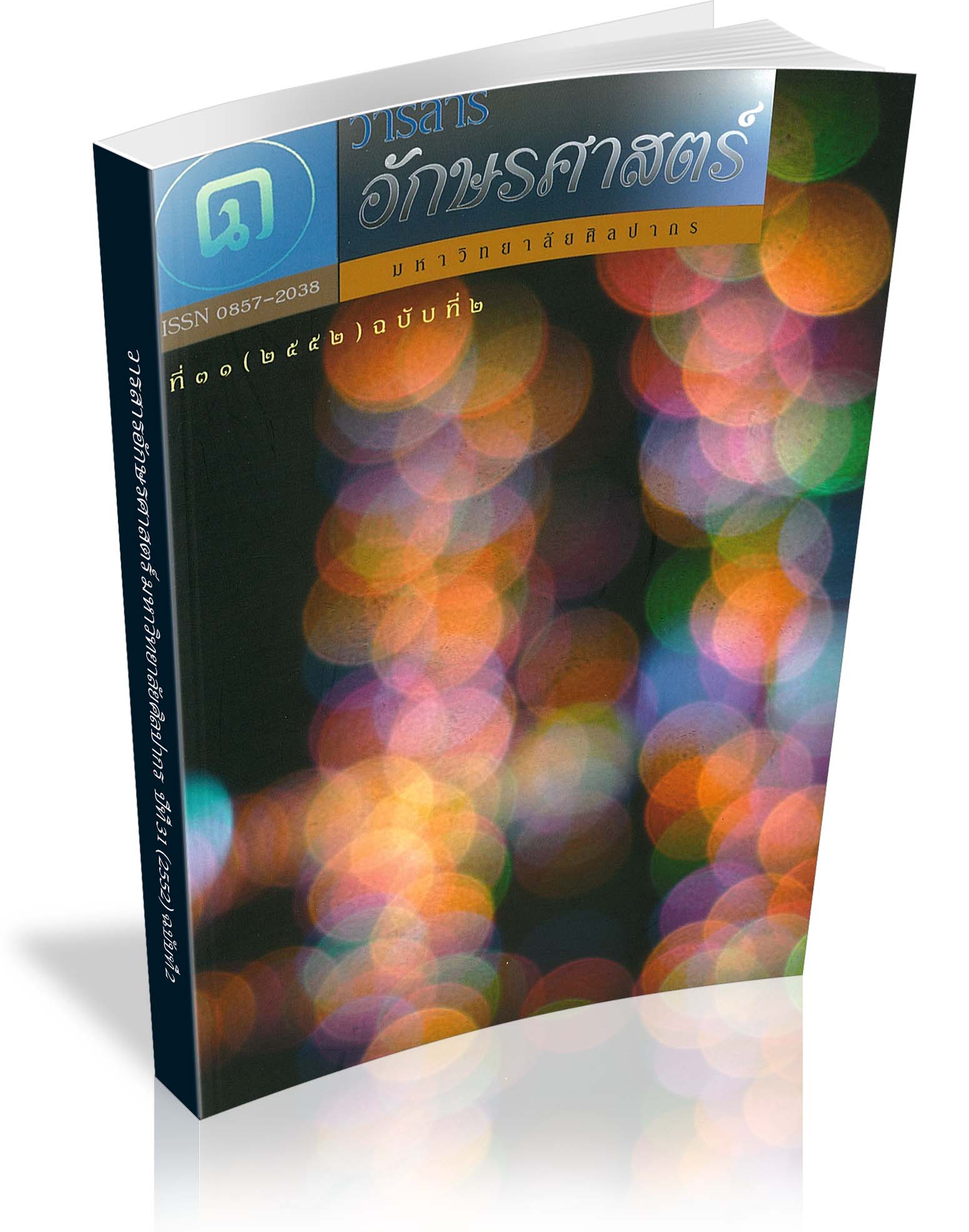Self-address Terms in Monologues of Speakers of Diverse Gender
Keywords:
self-address term, monologue, gender, sociolinguisticsAbstract
This article aims to study Thai self-address terms used by male speakers, female speakers, female-like male speakers, and male-like female speakers (namely speakers whose mindsets are different from their physiological gender) by collecting data from monologues, i.e. narrations in informal situations of the 4 groups of population. The study finds that speakers of every gender apply first-person pronouns and other nouns for self-address terms. Furthermore, there are highest frequencies of avoiding self-address terms in representing themselves in all groups of population. The first-person pronoun which is applied in every gender is “เรา” /raw/. The first-person pronoun “ผม” /phǒm/ appears only in male speakers' monologues. The first-person pronoun “ฉัน” /chǎn/ and certain kinship terms are used by female speakers and female-like male speakers, while male-like female speakers use some first-person pronouns such as “กู” /kuu/ and “เค้า” /kháw/ or use their nicknames instead. These results illustrate the observation of self-address terms of speakers of diverse gender and show that female-like male speakers prefer the same self-address terms as female speakers. On the other hand, male-like female speakers refuse to use "ผม" /phǒm/, which is used among male speakers.
Downloads
References
ชัชนีย์ วินิจชัยนันท์. “การวิเคราะห์คำศัพท์สแลงของชายที่มีจิตใจเป็นหญิง.” วิทยานิพนธ์ปริญญาอักษรศาสตรมหาบัณฑิต สาขาวิชาภาษาไทย บัณฑิตวิทยาลัย มหาวิทยาลัยศิลปากร, ๒๕๔๙
บาหยัน อิ่มสำราญ. “ข้อสังเกตเกี่ยวกับการใช้บุรุษสรรพนามของนักศึกษาหญิงในมหาวิทยาลัย.” ใน วารวัลย์, ๘๗-๙๙. บาหยัน อิ่มสำราญ, บรรณาธิการ. นครปฐม : ภาควิชาภาษาไทย คณะอักษรศาสตร์ มหาวิทยาลัยศิลปากร, ๒๕๔๙.
Cooke, Joseph R. “Pronominal Reference in Thai, Burmese and Vietnamese." Ph.D. dissertation, University of California Press, 1972.
Lakoff, Robin. Language and Woman's Place. New York : Harper & Row, 1975.
Thorne, Barrie, Cheris Kramarae and Nancy Henley, editors. Language, gender and society. Rowley, Mass. : Newbury House, 1983.
Downloads
Published
How to Cite
Issue
Section
License
ผู้เขียนบทความต้องยินยอมในข้อกำหนดต่าง ๆ ของวารสารก่อนส่งบทความตีพิมพ์



